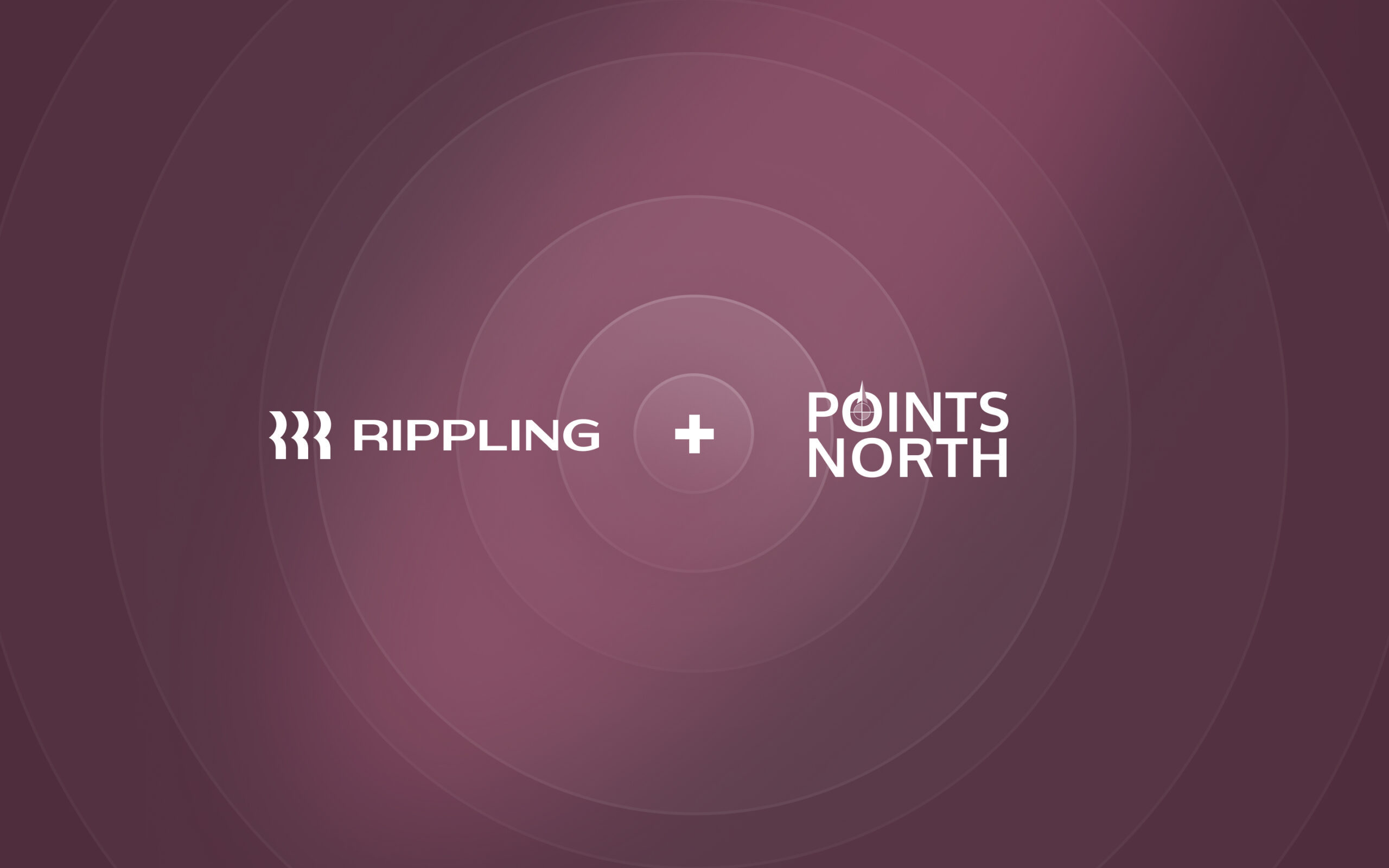Employment and labor laws in North Dakota [Updated 2025]

In the US, labor and employment laws play a vital role in upholding safe and fair treatment of employees in the workplace. These regulations encompass a wide range of protections, such as equal opportunities in hiring to prevent discrimination, the right to unionize and participate in collective bargaining, and more.
Keeping track of North Dakota's employment and labor laws, from minimum wage to workers’ compensation, can be overwhelming. Fortunately, state regulations in the Peace Garden State generally mirror federal law—but employers are still responsible for knowing and complying with specific state laws to protect their employees and avoid legal issues.
Make hiring easy with Rippling’s Professional Employer Organization service for tax registration and management. Simplify the process and take the guesswork out of compliance so you can focus on what really matters—growing your business.
Employment vs. labor law: What’s the difference?
Employment law and labor law are sometimes used interchangeably, but the two terms have distinct meanings. Employment law concerns the legal relationship between employers and individual employees. Labor law, on the other hand, is concerned with the relationship between employers and organized groups of employees, such as labor unions.
Here's a quick overview of both terms:
- Employment law encompasses working hours, wages, overtime regulations, hiring procedures, and workplace discrimination.
- Labor law is a subset of employment law that explicitly addresses matters like union membership, union dues, and the negotiation of collective bargaining agreements.
Wages and hours in North Dakota
The North Dakota Department of Labor and Human Rights (ND DOLHR) oversees wages and working hours in North Dakota. Employers have the discretion to determine their employees' work hours. There are no specific limits on how much overtime an employee can work, but they are entitled to receive overtime pay for any hours worked beyond 40 hours in a workweek.
Here’s a closer look at North Dakota’s minimum wage, overtime pay, and pay transparency rules.
Minimum Wage in North Dakota
In 2025, non-tipped employees in North Dakota are eligible for a minimum wage rate of $7.25 per hour under North Dakota Code § 34-06-22. This rate has remained unchanged since 2009.
For tipped employees, the minimum wage is calculated differently. The hourly minimum wage for them is $4.86, and tips cover the remaining amount. If the total amount of tips, plus the minimum wage of $4.86 per hour, is less than the federal minimum wage of $7.25 per hour, then the employer must make up the difference. To qualify as a tipped employee, the worker must earn at least $30 monthly in tips.
Employees who are younger than 20 years old can receive an apprentice wage of $4.25 per hour for the first 90 days of their employment or until they reach 20 years of age. Additionally, certain employers may pay full-time high school or college students who work part-time up to 85% of the North Dakota minimum wage for up to 20 hours of work during the school week. North Dakota doesn’t have a training wage.
Rippling can flag minimum wage violations automatically, ensuring compliance with state and federal regulations based on employees’ locations, including North Dakota.
Overtime pay in North Dakota
Employers in North Dakota are required to compensate their employees with overtime pay if they work for more than 40 hours in a workweek under the Fair Labor Standards Act (FLSA). Overtime must be paid at a rate of 1.5 times the employee's regular rate for all hours worked beyond 40, with a few exemptions. A workweek consists of seven consecutive days.
Rippling's payroll software simplifies complying with North Dakota overtime laws by automatically applying the correct rate when an employee’s hours trigger overtime pay requirements.
Pay transparency in North Dakota
Pay transparency laws aim to prevent wage inequality based on gender, age, and race—basically, equal pay for equal work.
In North Dakota, there's no statewide pay transparency law. But, there’s the North Dakota Equal Pay for Men and Women Act that aims to eliminate wage discrimination based on sex. According to the law, employers are prohibited from paying their male and female employees differently for comparable work with comparable requirements. Additionally, employers can’t discriminate against or terminate employees who exercise their rights under the law.
Rippling enforces compensation bands during the hiring process and flags out-of-band adjustments so you can approve special cases and block others as needed.
Breaks and rest periods in North Dakota
North Dakota employers must give their employees a 30-minute meal break if their shift is longer than five hours and there are two or more employees on duty. During the meal break, the employee should be completely relieved of their duties. The meal break can only be unpaid if the employee isn't required to do any work during the break. If the employee is required to perform any duties during the meal period, it must be paid.
Nearly all FLSA-covered employees have the right to take reasonable breaks to express breast milk for their nursing child. Under North Dakota law, this right applies for one year after the child's birth.
Leaves of absence in North Dakota
North Dakota's leave laws generally align with federal guidelines. Here’s what employers need to know.
Vacation time
Private employers in North Dakota aren’t required to provide paid time off for vacation but must honor employment contracts that include it.
Family and medical leave
Although North Dakota labor laws don’t require employers to offer family leave, they must comply with the Family and Medical Leave Act (FMLA). Under the FMLA, employers with more than 50 employees must allow their staff to take up to 12 weeks of unpaid leave each year for illness, significant life events such as childbirth or adoption, or caring for a sick or injured family member.
Military leave
Under the federal Uniformed Services Employment and Reemployment Rights Act (USERRA), employees called to active duty or authorized training in the military are entitled to take a leave of absence from their jobs.
Employers who have 15 or more employees are required to provide eligible employees with unpaid military leave. After the employees return from military service, they must be reinstated to their previous positions with the same seniority, employee wages, and benefits.
Voting leave
Employers are encouraged to establish a program that allows employees to take time off for voting, but it is voluntary and not required by law in North Dakota.
Holiday leave
Private employers aren’t required to offer paid or unpaid holiday leave, and employees may be required to work on public holidays without entitlement to premium pay unless stated in their employment contract.
Pregnancy disability leave in North Dakota
North Dakota doesn’t have state laws protecting pregnancy disability, so it’s covered under the FMLA. However, FMLA only applies to employers with at least 50 employees. Short-term disability plans offered by employers may provide additional benefits.
Paid sick leave in North Dakota
In North Dakota, employers aren’t required to offer paid sick leave to their employees. However, they can include it in their benefits package as part of the employment agreement. When a qualifying employee needs to take time off due to illness, the employer must provide unpaid sick leave as per federal regulations under the Family and Medical Leave Act if eligible.
Jury duty in North Dakota
It's illegal to punish employees for serving as jurors. However, private employers don't have to pay employees during jury duty leave.
With Rippling, you can automate and customize your leave policy, giving you a complete overview of how your employees use it.
Workplace safety in North Dakota
Employers must ensure their workers have a safe and secure workplace. This includes providing safe equipment, instructing employees on safety plans, and implementing company-wide safety policies. In North Dakota, federal laws established under the Occupational Safety and Health Administration (OSHA) protect employees from unsafe working conditions as the state doesn’t have its own occupational safety agency.
Child labor laws in North Dakota prohibit minors under the age of 15 from working in certain jobs deemed hazardous by the state.
Rippling PEO offers a pay-as-you-go workers’ comp plan without requiring upfront payment for the entire year, available in North Dakota and other US states.
Discrimination and harassment laws in North Dakota
Under the North Dakota Human Rights Act, employers in North Dakota can’t discriminate against employees based on:
- Race
- Color
- Religion
- Sex
- National origin
- Age
- Physical or mental disability
- Marriage status
- Public assistance status
- Participation in lawful activity off the employer's premises during nonworking hours, as long as it doesn’t conflict with the employer's business interests
The North Dakota Department of Labor and Human Rights enforces this law.
Federal civil rights laws, such as the Civil Rights Act, the Age Discrimination in Employment Act, the Americans with Disabilities Act, and the National Labor Relations Act (NLRA), also protect employees from discrimination and harassment in North Dakota.
Laws against employment discrimination protect former, current, and potential employees. It’s illegal for employers to discriminate against or harass employees based on a range of factors, including:
- Race
- Ethnicity
- Ancestry
- Religion
- National origin
- Disability
- Sex
- Sexual orientation
- Gender
- Citizenship status
- Age (40 and over)
Harassment is defined as any unwelcome behavior that targets an employee based on the above characteristics. It can include offensive jokes, insults, racial or sexual slurs, physical or sexual assaults, verbal threats, or any other disruptive behavior that negatively impacts an employee's well-being and job performance.
When an employee is subjected to an offensive environment as a part of their job, it’s considered harassment. It is crucial to note that minor annoyances, such as an occasional joke, are generally not considered harassment. When the offensive behavior becomes severe enough to cause a hostile work environment, it becomes illegal. Sexual harassment training requirements differ from state to state, and it isn’t legally mandated in North Dakota. However, it’s never a bad idea to provide training, even when it isn’t required.
Rippling’s Learning Management System comes pre-loaded with core sexual harassment training courses to make sure all employees are aware of best practices and meet their state requirements based on their location.
In North Dakota and at the federal level, employers are held accountable not only for their own acts of discrimination and harassment but also for the actions of their employees, regardless of whether they were aware of the behavior at the time it occurred.
Unions in North Dakota
A labor union is a group of workers who join together to negotiate collective agreements regarding their employment. These agreements cover wages, working conditions, time off, and benefits.
Under the National Labor Relations Act (NLRA), all US employees have the right to:
- Organize or join a union and engage in negotiations with their employer.
- Select representatives for collective bargaining.
- Raise concerns about working conditions through complaints.
- Engage in strikes and picketing under specific circumstances.
- Opt out of joining a union if they so choose.
Per the National Labor Relations Act (NLRA), it’s illegal for employers to fire or treat their employees in any negative way (such as demotion, bribery, or threats) because they have joined or supported a union. Similarly, the unions and their representatives are prohibited from threatening workers with job loss or any other negative consequences if they choose not to support the union.
North Dakota is a right-to-work state, meaning employees aren’t required to join a union to secure or retain their jobs. Employers are prohibited from discriminating against employees based on their union membership or lack thereof.
FAQs about North Dakota labor and employment laws
Are independent contractors covered under North Dakota employment laws?
North Dakota employment laws only apply to employees, not independent contractors. Use our analyzer tool to classify your workers correctly and avoid unexpected penalties.
Does at-will employment exist in North Dakota?
Yes, North Dakota follows the "at-will employment" doctrine whereby employees can leave their jobs for any reason, and employers can terminate employees for any lawful reason.
What privacy rights do employees have in North Dakota?
North Dakota doesn’t have a comprehensive law governing employee privacy rights. Audio and video recordings are legal as long as one party consents, and they aren’t private. However, a recent Senate Bill 2350, introduced in February 2025, aims to extend existing laws regarding the confidentiality of employees.
Are background checks legal in North Dakota?
Employers are legally allowed to conduct background checks on potential employees. However, background checks must abide by the limitations set by federal laws like the Fair Credit Reporting Act. The Act prohibits using unfavorable information that goes beyond a specific time frame. In North Dakota, the 'ban the box' law was signed by the governor in 2019; however, it’s currently applicable only to public employers.
Are whistleblowers protected in North Dakota?
Yes. Under North Dakota state laws 34-01-20, employers can’t punish, threaten, or discriminate against an employee who reports a violation or suspected violation of any federal, state, or local law to their employer, a government agency, or law enforcement in good faith.
Is workers’ compensation coverage required in North Dakota?
Enforced by the North Dakota Workforce Safety & Insurance Organization (WSI), North Dakota workers' compensation law applies to almost all employers in North Dakota, with a few exceptions. Employers must insure all employees, including full-time, part-time, seasonal, and occasional workers.
Are there required healthcare benefits in North Dakota?
The federal Affordable Care Act (ACA) requires businesses with 50 or more employees to provide group health insurance to full-time workers; those with less than 50 employees are exempt.
Are North Dakota employers required to provide bereavement leave?
No, North Dakota employers aren't required to provide employees with bereavement leave.
What employee protections are available in North Dakota if layoffs occur?
Employers with 100 or more employees are required to notify the North Dakota Department of Labor and Human Rights at least 60 days before a large layoff or plant closure, per the federal Worker Adjustment and Retraining Notification (WARN) Act. While there are no WARN state laws, the North Dakota Administrative Code requires all employers to file a notice of mass separation 48 hours before beginning layoffs. A mass separation is a layoff of 25 or more workers in a single organization.
This blog is based on information available to Rippling as of February 20, 2025.
Disclaimer: Rippling and its affiliates do not provide tax, legal, or accounting advice. This material has been prepared for informational purposes only, and is not intended to provide, and should not be relied on for tax, legal, or accounting advice. You should consult your own tax, legal, and accounting advisors before engaging in any related activities or transactions.






